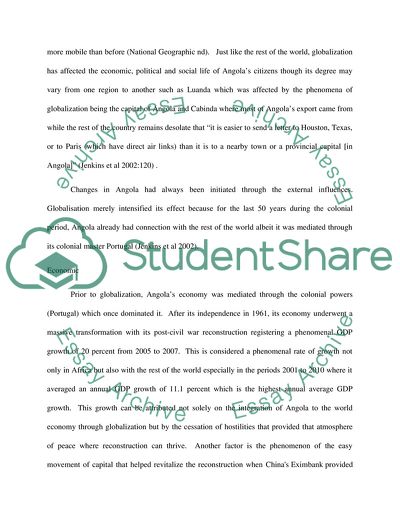Cite this document
(How Has Globalization Affected Angola in the Last 10 Years Coursework Example | Topics and Well Written Essays - 1500 words, n.d.)
How Has Globalization Affected Angola in the Last 10 Years Coursework Example | Topics and Well Written Essays - 1500 words. https://studentshare.org/politics/1850668-how-has-globalization-changed-angola-in-the-past-decade
How Has Globalization Affected Angola in the Last 10 Years Coursework Example | Topics and Well Written Essays - 1500 words. https://studentshare.org/politics/1850668-how-has-globalization-changed-angola-in-the-past-decade
(How Has Globalization Affected Angola in the Last 10 Years Coursework Example | Topics and Well Written Essays - 1500 Words)
How Has Globalization Affected Angola in the Last 10 Years Coursework Example | Topics and Well Written Essays - 1500 Words. https://studentshare.org/politics/1850668-how-has-globalization-changed-angola-in-the-past-decade.
How Has Globalization Affected Angola in the Last 10 Years Coursework Example | Topics and Well Written Essays - 1500 Words. https://studentshare.org/politics/1850668-how-has-globalization-changed-angola-in-the-past-decade.
“How Has Globalization Affected Angola in the Last 10 Years Coursework Example | Topics and Well Written Essays - 1500 Words”. https://studentshare.org/politics/1850668-how-has-globalization-changed-angola-in-the-past-decade.


